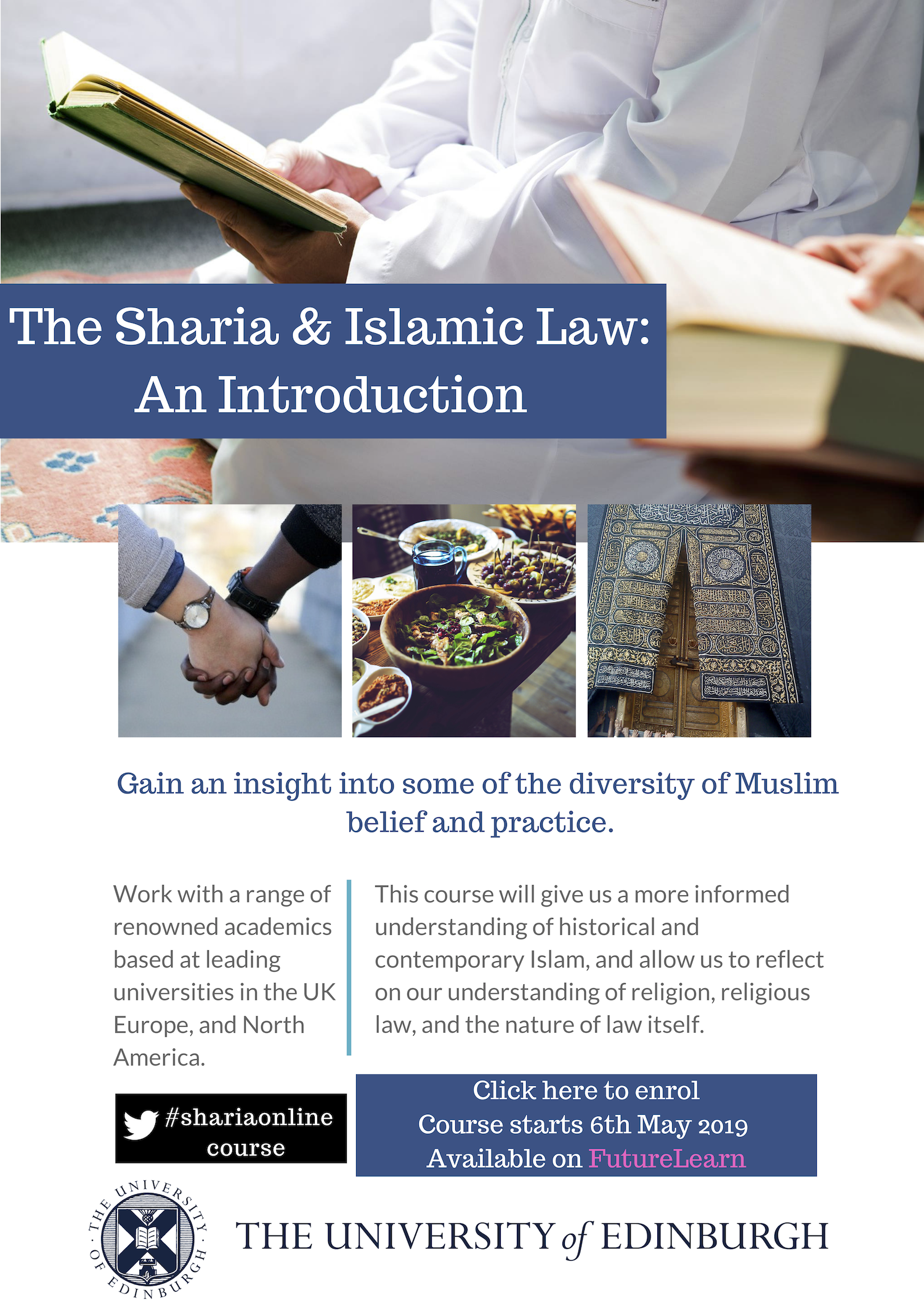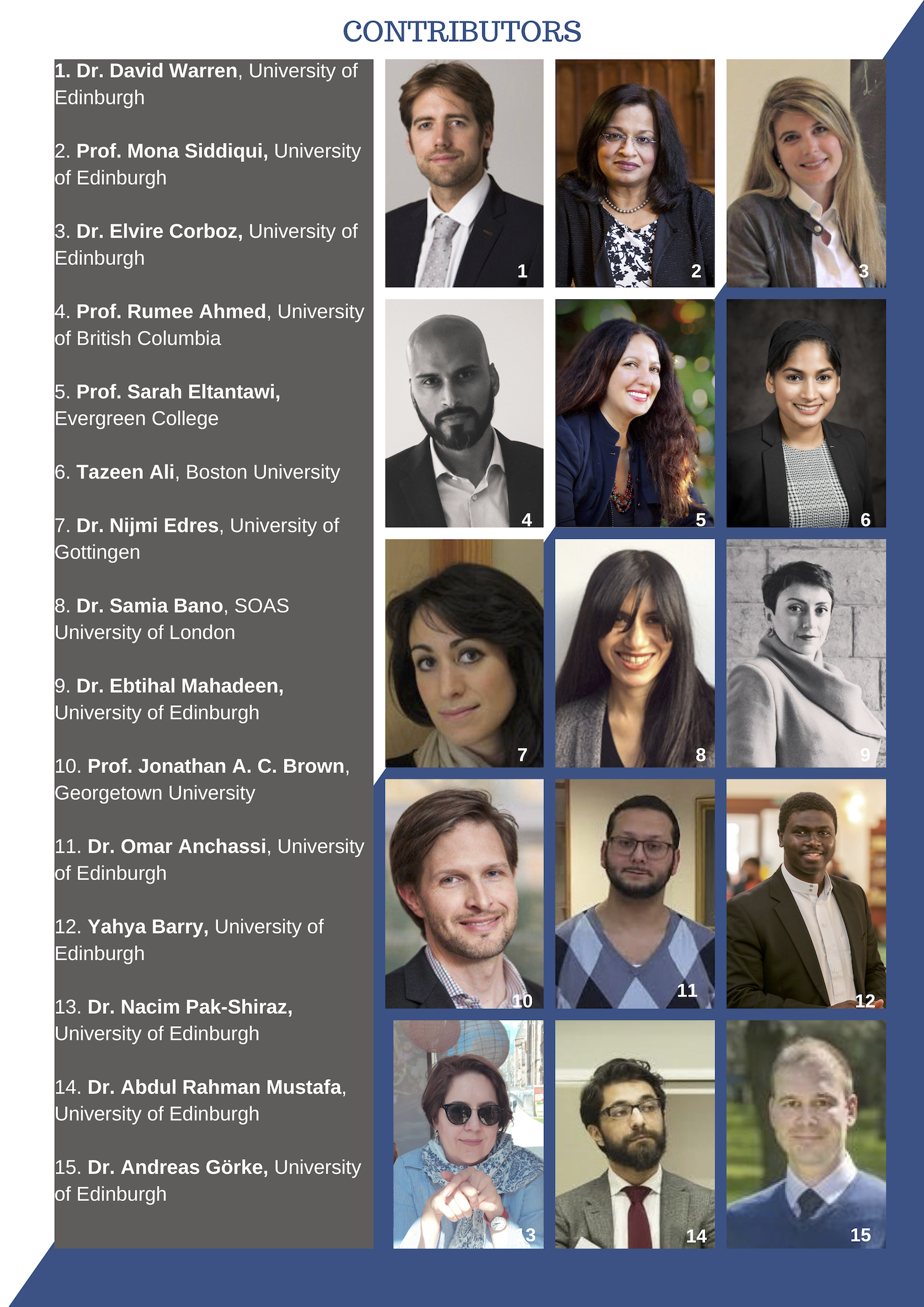The University of Edinburgh Alwaleed Centre is pleased to announce the launch of a free five-week online course entitled "The Sharia and Islamic Law: An Introduction".
The course begins on May 6, and prospective students can now sign-up via the course homepage:
www.futurelearn.com/courses/an-introduction-to-the-sharia-and-islamic-law
Delivered via the FutureLearn platform, this groundbreaking course will explore some of the diverse roles that the Sharia and Islamic law have played in Muslim life, both historically and today, encouraging students to think critically about the nature of religious law and its many manifestations.
The course provides an opportunity for learners to hear from renowned academics based at leading institutions from across North America and Europe. Among its features, the course also includes a series of online "film nights" including exciting and award-winning documentaries such as The Judge.
What Topics Will the Course Cover?
- What is Law? What is the Sharia? What is Islamic Law?
- How did Islamic Law work in the past and how did Islamic law adapt to social change?
- Understandings of justice and the impact of colonialism on Islamic law.
- The diverse manifestations of Islamic law in Muslim life today in contexts ranging from northern Nigeria to Palestine, to Indonesia to the United Kingdom.
- The role of Islamic law in a wide range of human activity, from individual worship to marriage/divorce.
Contributors
Dr. David H. Warren (University of Edinburgh)
Prof. Mona Siddiqui (University of Edinburgh)
Dr. Elvire Corboz (University of Edinburgh)
Prof. Rumee Ahmed (University of British Columbia)
Prof. Sarah Eltantawi (Evergreen College)
Tazeen Ali (Boston University)
Dr. Nijmi Edres (Gottingen University)
Dr. Samia Bano (SOAS University of London)
Dr. Ebtihal Mahadeen (University of Edinburgh)
Prof. Jonathan A.C. Brown (Georgetown University)
Dr. Omar Anchassi (University of Edinburgh)
Yahya Barry (University of Edinburgh
Dr. Nacim Pak-Shiraz (University of Edinburgh)
Dr. Abdul Rahman Mustafa (University of Edinburgh)
Dr. Andreas Gorke (University of Edinburgh)

